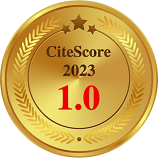Enlightening Bangladesh: Navigating power sector challenges through PPP excellence
Vol 8, Issue 3, 2024
VIEWS - 642 (Abstract) 192 (PDF)
Abstract
As Bangladesh faces its current energy crisis, public-private partnerships (PPPs) emerge as a promising solution, bridging the strengths of both sectors toward a brighter, more electrified future. This research focuses on the challenges in Bangladesh’s power sector: increasing electricity demand and the imperative for a consistent supply of renewable energy sources. The research employs content analysis, exploring various aspects, including policy documents, regulatory frameworks, stakeholder engagements, and resource assessments, with a specific focus on three key variables: regulatory framework, stakeholder engagement, and informed policymaking. Drawing on the ‘resource-based view’ theory, the study emphasizes the significance of ‘mitigating resource risks’ through ‘resource assessment.’ Empirical support is derived from an extensive review of literature in reputable journals and research articles, enhancing the research’s credibility with real-world evidence. The study provides a practical roadmap for stakeholders navigating Bangladesh’s power sector, addressing energy challenges, and promoting sustainability.
Keywords
Full Text:
PDFReferences
Alam, S. (2021). Tapping the benefits of solar rooftop projects under net metering in Bangladesh: A capacity needs assessment study. Appropriate Technology, 48, 52–55.
Alam, M., & Bhattacharyya, S. (2017). Are the off-grid customers ready to pay for electricity from the decentralized renewable hybrid mini-grids? A study of willingness to pay in rural Bangladesh. Energy, 139, 433–446. https://doi.org/10.1016/j.energy.2017.07.125
Almarri, K. & Abuhijleh, B. (2017). A qualitative study for developing a framework for implementing public-private partnerships in developing countries. Journal of Facilities Management, 15 (2), 170–189. https://doi.org/10.1108/JFM-07-2016-0031
Azad, M. A. K., Jin, X. (2021). Public-Private Partnership (PPP) Infrastructure Projects in Bangladesh: Challenges and Opportunities. In: Proceedings of the 24th International Symposium on Advancement of Construction Management and Real Estate. pp. 497-505. https://doi.org/10.1007/978-981-15-8892-1_35
Abdulrazak, L. F., Islam, A., & Hossain, Md. B. (2021). Towards energy sustainability: Bangladesh perspectives. Energy Strategy Reviews, 38, 100738. https://doi.org/10.1016/j.esr.2021.100738
Badiuzzaman, Md. H., Rashid, Md. S. K. S., Md. T. R. (2018). Development transition from least developed country (ldc) to developing country: Current progress and challenges of Bangladesh. International Journal of Development Research, 8(9), 22812–22818.
Bangladesh Power Development Board. (2020). Bangladesh Power Development Board Annual Audit Report. Audit Report and Accounts (Financial Year: 2020–2021). Available online: https://bpdb.portal.gov.bd/site/page/e4d68a63-f598-4ad0-a1c0-21e1863d9988/- (accessed on 12 June 2022).
Bangladesh Power Development Board. (2022). Bangladesh Power Development Board Annual Audit Report. Independent Auditors’ Report & Audited Financial Statements (Financial Year: 2021–2022) (Website Upload date:12/19/2022) https://bpdb.portal.gov.bd/site/page/e4d68a63-f598-4ad0-a1c0-21e1863d9988/- (accessed on 19 December 2022).
Batjargal, T., & Zhang, M. (2021). Review of key challenges in public-private partnership implementation. Journal of Infrastructure, Policy and Development, 5(2), 1378. https://doi.org/10.24294/jipd.v5i2.1378
Batjargal, T., & Zhang, M. (2022). Review on the Public-Private Partnership. Management Studies, 10(1). https://doi.org/10.17265/2328-2185/2022.01.001
Bhuiyan, M. R. A., Mamur, H., & Begum, J. (2021). A brief review on renewable and sustainable energy resources in Bangladesh. Cleaner Engineering and Technology, 4, 100208. https://doi.org/10.1016/j.clet.2021.100208
Carpentier, C. L., & Braun, H. (2020). Agenda 2030 for Sustainable Development: A powerful global framework. Journal of the International Council for Small Business, 1(1), 14–23. https://doi.org/10.1080/26437015.2020.1714356
Gheewala, S. (2019). Energy reliability through solar public-private partnerships in India and Bangladesh for sustainable community development. A Capstone Project. Available online: https://jscholarship.library.jhu.edu/server/api/core/bitstreams/01506b49-daef-4844-a18f-4ac6650b66a9/content (accessed on 12 December 2022).
Giménez, L., Jolliffe, D., & Sharif, I. (2014). Bangladesh, a Middle Income Country by 2021: What Will It Take in terms of Poverty Reduction? The Bangladesh Development Studies, 37(1 & 2), 1–19.
Gupta, D., Ghersi, F., Vishwanathan, S. S., & Garg, A. (2019). Achieving sustainable development in India along low carbon pathways: Macroeconomic assessment. World Development, 123, 104623. https://doi.org/10.1016/j.worlddev.2019.104623
Hassan, M. R. (2012). PPP in Bangladesh: Reality and Prospect, ASA University Review, 6 (1), 227–237.
Hossain, S., & Rahman, M. M. (2021). Solar Energy Prospects in Bangladesh: Target and Current Status. Energy and Power Engineering, 13(08), 322–332. https://doi.org/10.4236/epe.2021.138022
Huda, A. S. N., Mekhilef, S., & Ahsan, A. (2014). Biomass energy in Bangladesh: Current status and prospects. Renewable and Sustainable Energy Reviews, 30, 504–517. https://doi.org/10.1016/j.rser.2013.10.028
Islam, M. A., Haydar, S., Baten, M. A., & Islam, M. T. (2021). The Prospect of Biomass Energy Resources in Bangladesh: A Study to Achieve the National Power Demand. Electrical and Electronic Engineering, 11(1), 1–6. https://doi.org/10.5923/j.eee.20211101.01
Islam, M. R. Karmaker, A. K., & Ahmed, M. R. (2018). Cogeneration Rising Trend in Bangladesh for Energy Crisis, 2018 8th International Conference on Intelligent Systems, Modelling and Simulation (ISMS), Kuala Lumpur, Malaysia, pp. 95–99. https://doi.org/10.1109/ISMS.2018.00027
Islam, M. S., Nepal, M. P., Skitmore, M., & Kabir, G. (2019). A knowledge-based expert system to assess power plant project cost overrun risks. Expert Systems with Applications,136, 12–32. https://doi.org/10.1016/j.eswa.2019.06.030
Islam, M. R., & Rahman, A. (2019). Prospects of PPP Project in Bangladesh: A Study on Power Sector. Journal of Governance and Innovation, 5 (1), 47–60.
Islam, M. T., Shahirb, S. A., Uddin, T. M. I., & Saifullaha, A. Z. A. (2014). Current energy scenario and future prospect of renewable energy in Bangladesh. Renewable and Sustainable Energy Reviews, 39, 1074–1088 http://dx.doi.org/10.1016/j.rser.2014.07.149
Islam, S. (2019). A review on recent growth of electrical power generation and power demand in Bangladesh and some suggestions for combating the upcoming challenges. Energy Procedia, 169, 60–67. https://doi.org/10.1016/j.egypro.2019.02.119
Khan, M., Riley, T., & Wescott, C. (2012). Public-Private Partnerships in Bangladesh’s Power Sector: Risks and Opportunities. http://dx.doi.org/10.2139/ssrn.2186468
Kirikkaleli, D., Ali, M. & Altuntaş, M. (2022). Environmental sustainability and public-private partnerships investment in energy in Bangladesh. Environ Sci Pollut Res, 29, 56068–56078. https://doi.org/10.1007/s11356-022-19771-1
Li, B. (2023). The role of financial markets in the energy transition: An analysis of investment trends and opportunities in renewable energy and clean technology. Environmental Science and Pollution Research, 30, 97948–97964. https://doi.org/10.1007/s11356-023-29014-6
Mahmud, R., & Saleh, A. (2019). Energy Laws of Bangladesh: Calling for Collaboration to Treat in Amenability with the Standard of Acceptance and Application. Journal of Governance and Innovation, 5 (2), 45–71.
Mawla, M. R., & Md. Khan, M. Z. R. (2020). A Study on Generation of Electricity Plan by 2041 for Sustainable Development in Bangladesh. Available online: https://www.kuet.ac.bd/icmiee2022/Technical_and_Keynote_papers/All_Paper/ICMIEE20-040.pdf (accessed on 12 December 2022).
Narayan, P. K., & Narayan, S. (2010). Carbon dioxide emissions and economic growth: Panel data evidence from developing countries. Energy Policy, 38(1), 661–666. https://doi.org/10.1016/j.enpol.2009.09.005
Power System Master Plan 2016. (2016). Power Division, Ministry of Power, Energy and Mineral Resources, Government of the People’s Republic of Bangladesh. Available online: https://powerdivision.portal.gov.bd/sites/default/files/files/powerdivision.portal.gov.bd/page/4f81bf4d_1180_4c53_b27c_8fa0eb11e2c1/(E)_FR_PSMP2016_Summary_revised.pdf (accessed on 12 December 2022).
Quito, B., del Río-Rama, M. de la C., Álvarez- García, J., & Bekun, F. V. (2023). Spatiotemporal influencing factors of energy efficiency in 43 European countries: A spatial econometric analysis. Renewable and Sustainable Energy Reviews, 182, 113340. https://doi.org/10.1016/j.rser.2023.113340
Rahman, M. A. (2022). US-Norway joint venture postpones the Bay hydrocarbon survey: At risk of losing security deposit on survey deal. Available online: https://thefinancialexpress.com.bd/trade/norway-us-jv-delays-bay-hydrocarbon-survey-1668480103 (accessed on 12 December 2022).
Rahman, M. M. & Begum, F. (2021). Prospect of renewable energy resources in Bangladesh. International Journal of Power Electronics and Drive Systems (IJPEDS),12(3), 1804–1812 DOI: 10.11591/ijpeds.v12.i3.pp1804-1812
Rashed, M. A., Alam, M. M., & Fahim, F. (2014). The performances and challenges of Public-Private Partnership (PPP) projects in Bangladesh. Journal of Bangladesh Studies, 15 (2), 62–71.
Reyes-Tagle, G. (2018). Bringing PPPs into the Sunlight: Synergies Now and Pitfalls Later? Inter American Development Bank-Publications. http://dx.doi.org/10.18235/0001240
Sadeque, Z., Rysankova, D., Elahi, R., Soni, R. (2014). Scaling Up Access to Electricity: The Case of Bangladesh. Live Wire, 2014/21. World Bank, Washington, DC.
Salam, M. N., Hasan, M. F., Rokonuzzaman, M., & Rahman, M. A. (2022). An Analysis of Water Characteristics of Shiddhirganj 210MW Steam Power Plant, Sirajganj 225MW Combined Cycle Power Plants and Rooppur 2400MW Nuclear Power Plant in Bangladesh: A Comparative Study of Power Plant Grade Water. International Journal of Engineering Materials and Manufacture, 7(4), 103–110. https://doi.org/10.26776/ijemm.07.04.2022.03
Sarower, H. M. G. (2021). Private Sector Engagement (PSE) in Electricity Generation of Bangladesh: Risk, Achievement and Challenges. South Asian Institute of Policy and Governance (SIPG), North South University, Dhaka, Bangladesh.
Taniguchi, M., & Kaneko, S. (2009). Operational performance of the Bangladesh rural electrification program and its determinants with a focus on political interference. Energy Policy, 37(6), 2433–2439. https://doi.org/10.1016/j.enpol.2009.01.027
Uddin, M. N., Rahman, M. A., Mofijur, M., et al. (2019). Renewable energy in Bangladesh: Status and prospects. Energy Procedia, 160, 655–661.https://doi.org/10.1016/j.egypro.2019.02.218
U.S. Department of State. (2021). 2021 Investment Climate Statements: Bangladesh. Available online: https://www.state.gov/reports/2021-investment-climate-statements/bangladesh (accessed on 12 December 2022).
World Bank. (2014). Public-Private Partnerships Reference Guide: Version 2.0. 42. Available online: https://ppp.worldbank.org/public-private-partnership/library/public-private-partnerships-reference-guide-version-20 (accessed on 12 December 2022).
World Bank Data. (2018). Electric power transmission and distribution losses (% of output). Available online: https://data.worldbank.org/indicator/EG.ELC.LOSS.ZS (accessed on 12 December 2022).
Worldometer. (2023). Bangladesh Population (Live) 173,739, 526 as of 12December 2023. Available online: https://www.worldometers.info/world-population/bangladesh-population/#:~:text=Bangladesh%202023%20population%20is%20estimated,(and%20dependencies)%20by%20population (accessed on 12 December 2022).
DOI: https://doi.org/10.24294/jipd.v8i3.2529
Refbacks
- There are currently no refbacks.
Copyright (c) 2024 Mengzhong Zhang, Rumana Shahid
License URL: http://creativecommons.org/licenses/by/4.0/

This site is licensed under a Creative Commons Attribution 4.0 International License.








